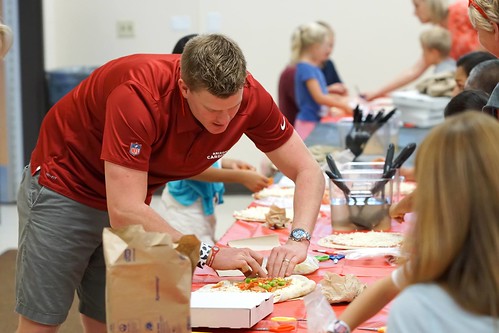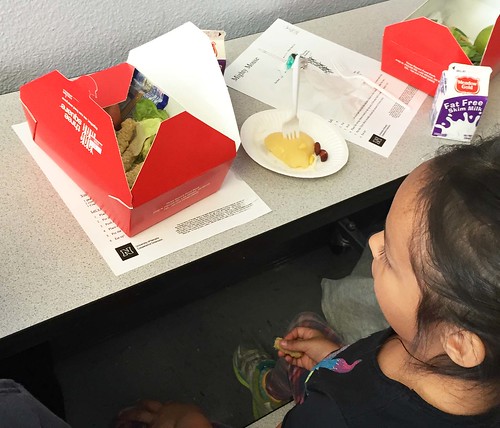
March is National Nutrition Month. Throughout the month, USDA will be highlighting results of our efforts to improve access to safe, healthy food for all Americans and supporting the health of our next generation.
Since the passage of the Healthy, Hunger-Free Kids Act of 2010, we have seen some extraordinary summer meal programs sponsors and partners. Here are three key tips we learned from some stellar partners in the Food and Nutrition Service’s Western Region that other programs can follow to ensure successful summer programs next year!
Create a kid-friendly program – The most successful summer meal programs are designed for kids themselves, who are creative, energetic, and very picky! Kona Pacific Public Charter School (Hawaii), Federal Way School District (Wash.), and Yuma Union High School District (Ariz.) stepped outside the box and inside the bus to deliver meals to children in underserved communities with limited access to transportation. To keep children coming back for more meals, these sites engaged kids with fun activities and offered books, games, crafts, and prizes. To ensure meals met the demands of even the pickiest eaters, Conejo Valley Unified School District (Calif.) and Riverside Unified School District (Calif.) catered to kids’ preferences by providing farm to summer fresh foods and by incorporating taste tests, menu planning sessions, and cooking demonstrations. Three Square Food Bank (Nev.) even made its packaging kid friendly! Instead of serving meals in traditional brown sacks, summer meals were placed into bright orange boxes with the Three Square logo.
Think beyond “just feeding kids” – Summer meal service is more than an opportunity to feed kids. Successful sponsors make every meal a gathering that welcomes families and community members by finding complementary funding sources. Lakeside Unified School District (Calif.) increased participation by hosting barbeques and involving parents. West Contra Costa Unified School District (Calif.) also increased child participation by offering adult meals. For the Washoe Tribe of Nevada and California, Tribal members prepared and served breakfast in addition to lunch and adult meals.
Invest in partnerships – Incorporating multiple community partners enabled Reynolds Unified School District (Ore.) to expand into its diverse community and allowed Pasadena Unified School District (Calif.) to develop strategies tailored to the needs of each site. Outstanding partners like the California Summer Meal Coalition connected sponsors with local partners, and non-profit organizations like the Dairy Council of Arizona, which provided ways to garner additional funding for promoting their programs, in addition to specialized attention for sites.
While these 13 awardees delivered unique community-centered programs, each incorporated three common elements: making summer meals more accessible and attractive to kids; engaging the community; and collaborating with diverse stakeholders. Feeding our communities requires dedicated time, energy, and community support. When it comes to summer, everyone can bring something to the table.



